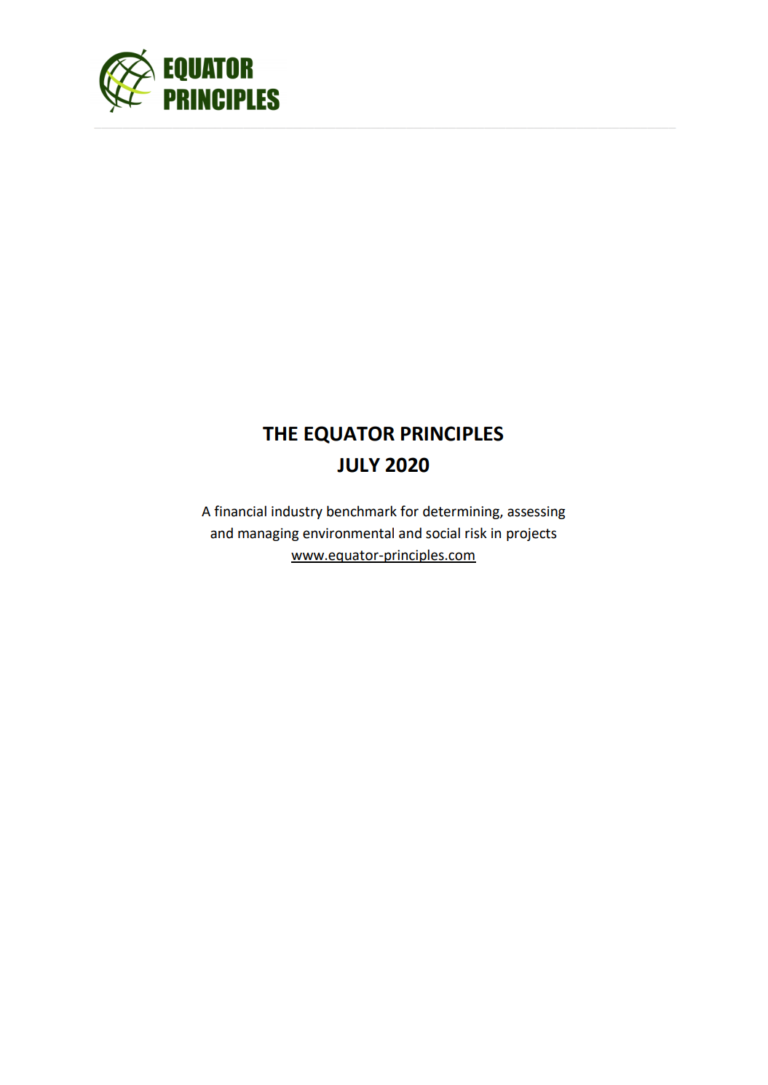Large infrastructure and industrial Projects can have adverse impacts on people and on the environment. As financiers and advisors, we work in partnership with our clients to identify, assess and manage environmental and social risks and impacts in a structured way, and on an ongoing basis. Such collaboration promotes sustainable environmental and social performance and can lead to improved financial, environmental and social outcomes. Where appropriate, we, the Equator Principles Financial Institutions (EPFIs), will encourage our clients to address potential or actual adverse risks and impacts identified during the Project Development Lifecycle.

